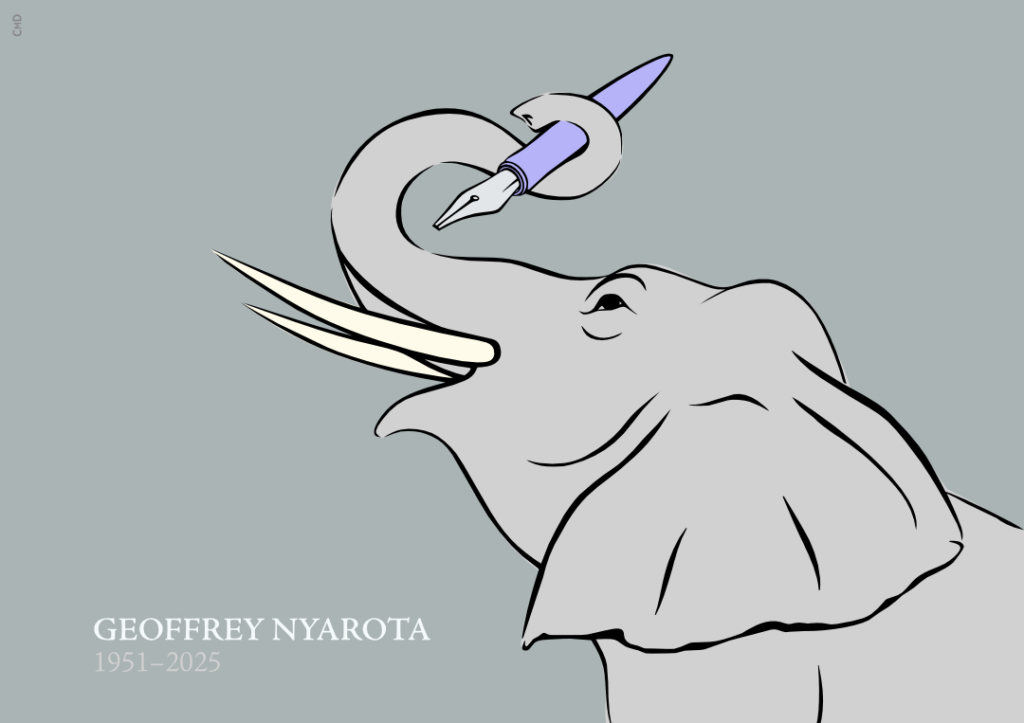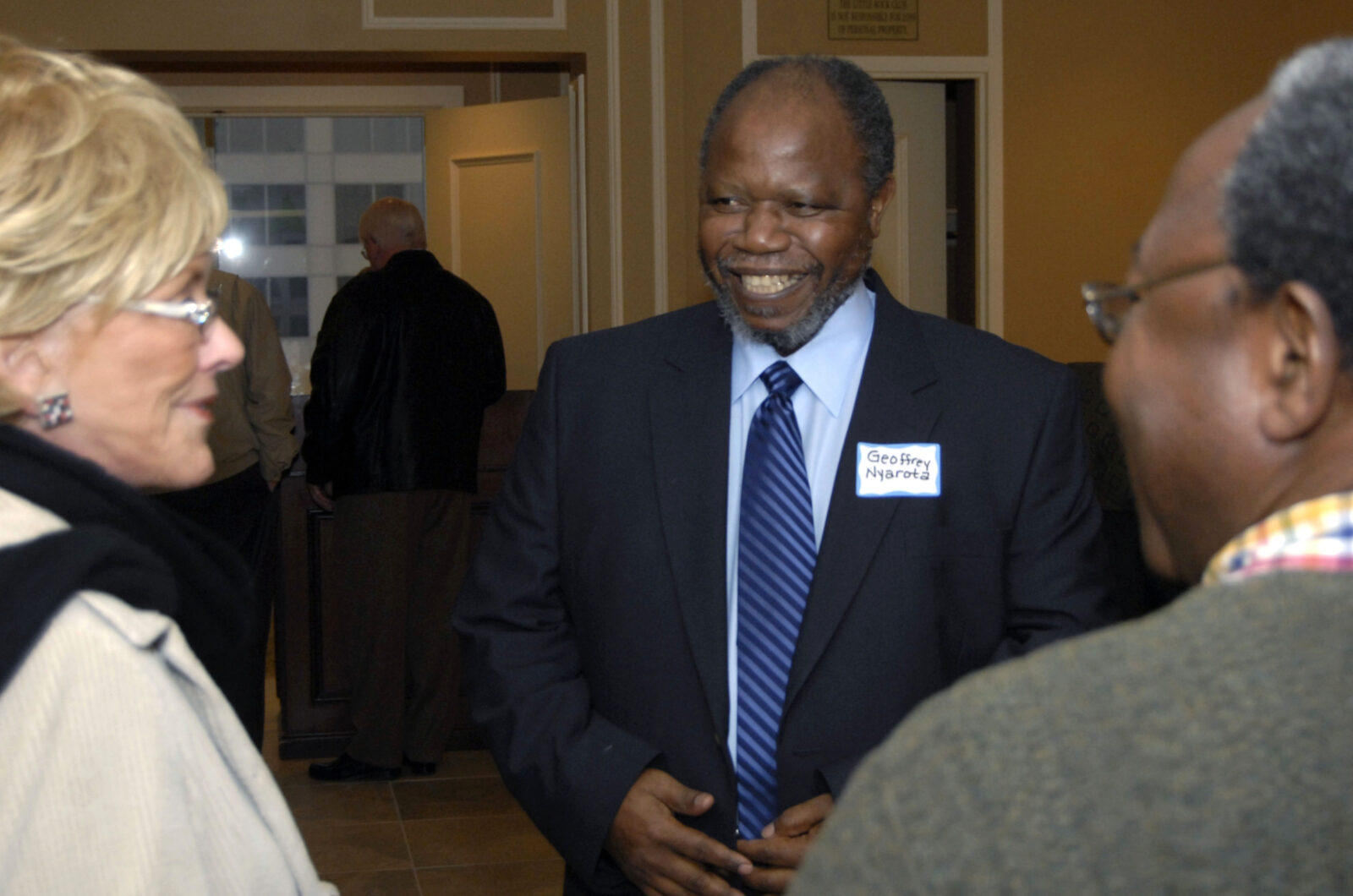News of the death of Geoffrey Nyarota, a towering figure in Zimbabwean journalism, has reverberated across the globe among the countless journalists, like myself, whom he inspired to follow in his path. We were all saddened to learn that Nyarota, who founded Zimbabwe’s largest independent daily newspaper and fought tirelessly for press freedom in our country, died on March 22, 2025, at age 74, from colon cancer.
He leaves behind a legacy of investigative journalism that inspired generations of Zimbabwean reporters with his pioneering work on exposing corruption and fighting for press freedoms.
Nyarota burst onto the scene in the 1980s, spearheading a high-level journalistic investigation into how senior officials were fleecing the government through corrupt vehicle sales. The revelations, which came to be known as the Willowgate scandal, rocked Zimbabwe to its core.
The story hit just as the country was gaining independence from Britain, with new leadership promising to rule with transparency and vowing to put the Black majority first. Nyarota’s work caused a deep sense of disillusionment about the government, as he documented how top officials had been reaping a fortune from a wide web of corruption. Following his exposé, several top government ministers resigned, and one committed suicide.
“From those early years he made a name for himself as a fearless journalist who didn’t allow the restrictions of a one-party state during Robert Mugabe’s days to curtail his appetite to shine light in the darkest of places,” said Kholwani Nyathi, the editor-in-chief of Alpha Media Holdings (AMH), the biggest independent media company in Zimbabwe.
“Geoff loved the craft of journalism, he was tenacious and very passionate, but he was also a great storyteller,” Nyathi said, adding that he “will be missed by many, not just in the journalism fraternity, but also by ordinary Zimbabweans who were touched by his work as a journalist and author.”
What was so revolutionary about Nyarota’s work at the time, was that he was an editor of a government-controlled newspaper, The (Bulawayo) Chronicle. It was, to say the least, unexpected for a journalist at a government-funded outlet to expose corruption of this magnitude — about his own employer.
Government-controlled news outlets — then, as now — are widely viewed in Zimbabwe as obligated to sing the praises of the administration that controls them, and not shine a light on anything negative. It’s a form of reporting referred to as “lapdog journalism” to this day.
But Nyarota went against the grain. And although his work gained widespread recognition, it created a lot of personal problems for him, chief among them: losing his job. After being forced out of the government-controlled newspaper, he worked as an editor of a weekly financial paper, before renewed government pressure forced him to leave the country.
But he never gave up the fight, returning to Zimbabwe in 1999 to found The Daily News — the country’s only independent daily newspaper at the time — and one of the most fearless newspapers to have ever existed in Zimbabwe. The paper’s relentless reporting to expose corruption and human rights abuses was a widely read success, making the government increasingly desperate to silence it. The onslaught against the free press began anew — with a reign of terror not only waged against journalists and support staff, but down to the vendors who sold the paper on the streets.

New, repressive laws were enacted to criminalize the free press, and Nyarota and several of his colleagues endured various forms of harassment. The paper’s printing press was bombed. Nyarota was forced out — of both his job and his country — by a government-led crackdown on independent media. After multiple arrests and death threats, Nyarota was forced to flee Zimbabwe and found temporary respite at the Nieman Foundation, coming to Harvard in January of 2003, and remaining as a member of the 2004 Nieman fellowship class.
In spite of the continuing hostility against a free press, investigative journalism in Zimbabwe continues to thrive, with new generations of journalists inspired by Nyarota's courage and example.
Andrew Meldrum, a 2008 Nieman Fellow and former Africa news editor for The Associated Press, said journalism had suffered a great loss with Nyarota’s passing.
“Against daunting odds, Geoff bravely carved out a distinguished career from exposing corruption in Zimbabwe in 1988, to founding and leading The Daily News, and maintaining his fiercely independent voice in exile, and then back in Zimbabwe,” said Meldrum, who worked in the country for 23 years. “The impressive array of awards he earned cannot make up for the hardships he and his family endured. Through it all, Geoff was a generous colleague and great friend. He leaves a legacy for all journalists — in Zimbabwe and around the world — to strive to live up to,” Meldrum added.
Nyarota’s death comes at a time when attacks on the free press in Zimbabwe are continuing. The country is ranked 116th (out of 180) on the Reporters Without Borders World Press Freedom Index for 2024. The report adds that the media situation in the country had started to improve slightly after the 2017 fall of Mugabe, but that media persecution is on the rise again since the 2023 reelection of President Emmerson Mnangagwa.
The government still uses political pressure and lawfare to harass and intimidate journalists, while the poor state of the economy also makes it harder for some media houses to dedicate resources to support the kind of investigative work that Nyarota was known for.
But many Zimbabwean journalists, such as Hopewell Chin’ono, NF’10, — who has also faced harassment and imprisonment for his reporting — continue the work. He credited Nyarota as a trailblazer for investigative journalism in the country.
“Geoffrey Nyarota was a pioneering editor who helped in setting a standard for investigative journalism in Zimbabwe at a time when it was an alien form of journalism in the mainstream media,” Chin’ono said.
He added that Nyarota will be remembered fondly “for his great journalism, as well as for his larger-than-life way of living.” adding that it is sad that Nyarota “died when there is another Zimbabwean journalist in jail [AMH’s Blessed Mhlanga] without trial, for simply doing his work.”
A new generation of Zimbabwean journalists credit Nyarota’s courage for their own career paths. Fungai Tichawangana, NF '16, said he was only 11 years-old in 1988 when the Willowgate scandal made the headlines, but it made a lasting impression on him.
“At the time, I had no idea who was behind the reporting, but that moment marked my first encounter with Geoffrey Nyarota’s work. Later, as I learned more, I would come to deeply admire his courage,” Tichawangana said. “He inspired many Zimbabwean journalists to lead with integrity and courage in the face of incredible intimidation.”
Tichawangana, a digital media entrepreneur who pioneered digital arts & culture journalism in Zimbabwe in the early 2000s, said there are few journalists in Zimbabwe over the last 30 years who have not been touched by Nyarota’s work, or inspired by his tenacity and courage, adding, “His impact is woven into the fabric of our profession.”
Check out Geoffrey Nyarota’s full obituary on Nieman’s site here.
Obey Martin Manayiti, NF ‘20, is a Zimbabwean-born journalist who, before coming to the U.S. as a Nieman Fellow, was an investigative reporter focusing on natural resources governance and politics. Manayiti is now a business journalist in New York.



